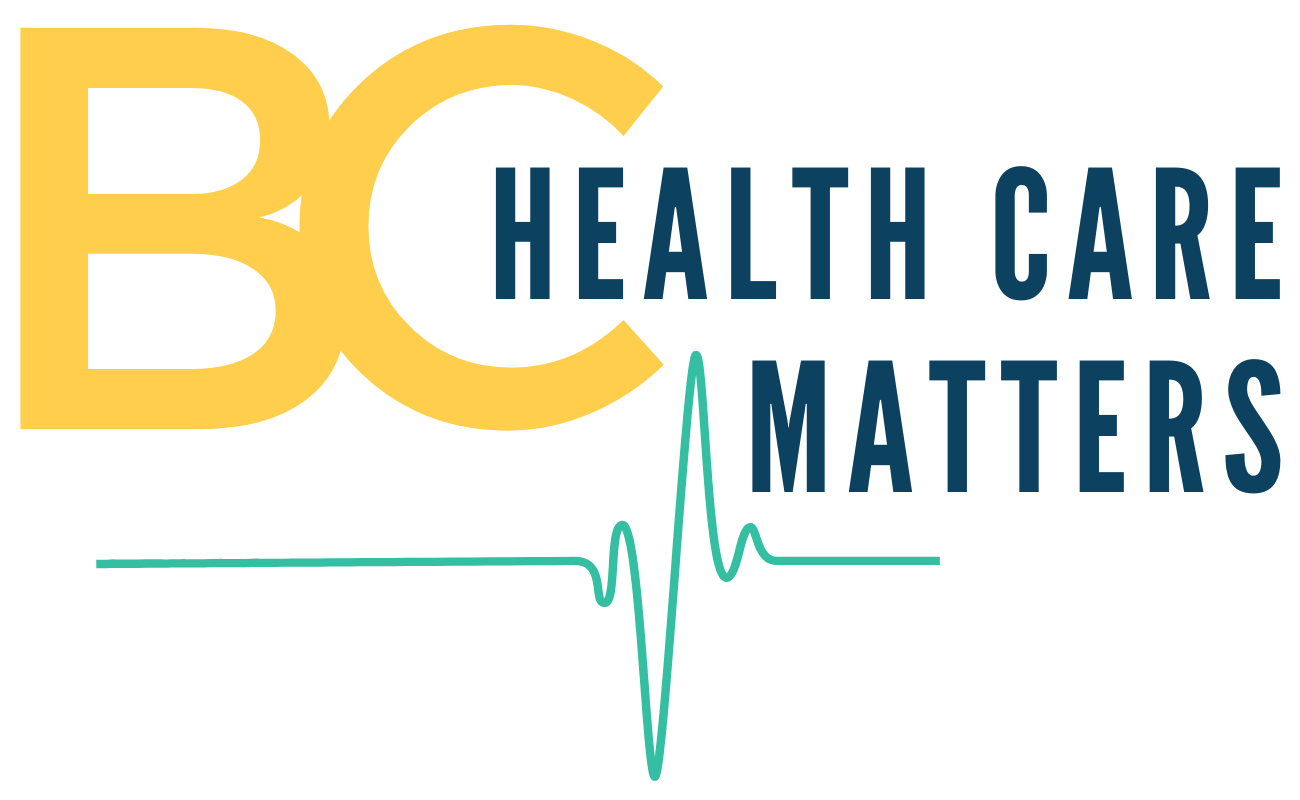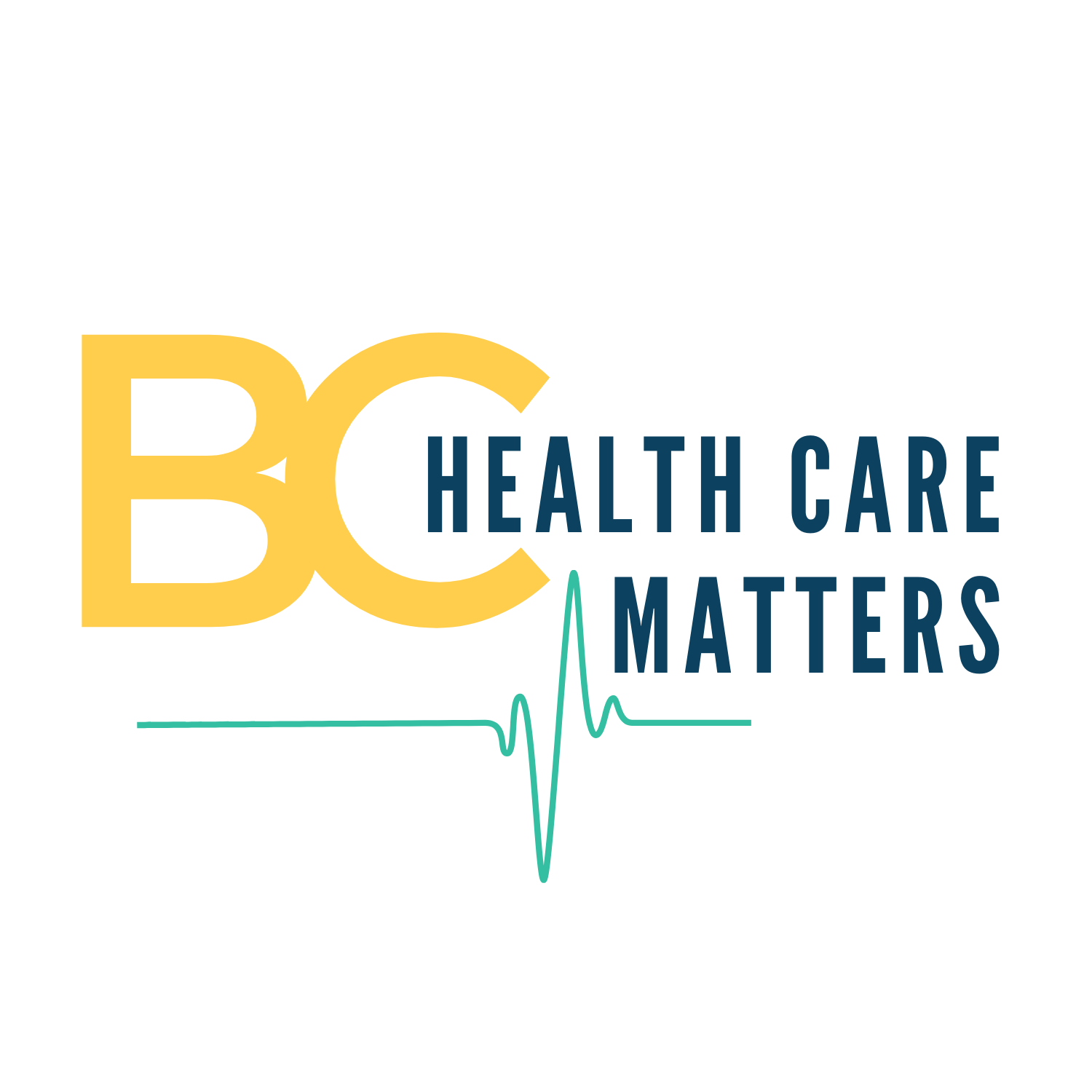FACE-TO-FACE WITH MINISTER DIX: WORSE THAN ANTICIPATED
Camille Currie (left), Adrian Fine (centre), Sharman Minus (right)
Adrian Fine MD, Sharman Minus, Camille Currie, members of BC Health Care Matters, a patient care advocacy group.
For years we have requested to meet with Mr Dix to discuss the many deficiencies in BC health care delivery. We have never had so much as a pro-forma response from anyone in BC Health. Recently each of us individually had the opportunity to chat with him at a meeting held in the Legislature to welcome the appointment of BC’s first Physician Assistant (PA). Each of us broached different topics with the minister. It became clear to us not only why health care delivery in this Province is so near to collapse but why it is difficult to conceive of Mr Dix being up to the task of remedying the multiple deficiencies. Not having highly relevant information at hand, expressing somewhat frivolous statements combined with quixotic forward planning were stark features of the Minister’s contribution to our conversations. This has put us under a blanket of deep pessimism for the future.
PA’s have become essential components of health care delivery across Canada and in USA. They significantly increase the number of patients that can be seen in a physician’s practice in a cost effective manner. The shortage of physicians, especially family practitioners (FP), has left nearly one million BC residents without a primary care physician. Measures to increase overall physician numbers (expand medical school places, increase residency training programs, recruit foreign medical graduates etc) often take years to produce tangible results whereas PA’s can be trained in a 2 year program. We know, from a recent survey, that several dozen PAs who practice in Canada would like to move to BC.
There are one thousand working PAs in Canada. Per capita, we should have well over one hundred, especially as these PA programs have been operative (Ontario, Manitoba) for over a decade. But we are a unique province. We have none. Had we a PA program, then many tens of thousands of patients would have had primary care coverage, without which many hundreds (probably thousands) have and will continue to face completely preventable diseases, suffering and death.
When asked why only one PA, Mr Dix replied that a ‘pilot study’ was needed. When then asked why this was necessary, given that PA programs have been working across Canada for years and why only have one PA for the pilot rather than several, Mr Dix gave an extraordinarily fatuous reply. “If I opened up eight hundred spaces and only fifty applied, that would look bad wouldn’t it?”. He refused to give a timeline for evaluating the pilot ‘study’. He expressed not one iota of meaningful forward planning. It is worth noting that Saskatchewan took less than one year to introduce a fully operational PA program.
When asked by another one of us for the breakdown of his recent statement that seven hundred new doctors had been recruited to primary care since the new payment model was introduced, namely what is the FTE (full-time equivalent) number, he had no idea. He resisted further discussion. Without this number his boast is meaningless. He should know this number. It is a critical measure of reducing the number of residents who have no FP. If his number was true and meaningful, assuming that each FP could take on approximately 1000 patients, then hey presto, 700,000 people would now have a FP, all within the past year. We all know that it is still agonizingly difficult to find a FP. Our own recent on-line survey revealed that 50% of respondents had no FP and of these 50 % had been over four years seeking one!
The failure to reveal meaningful data, a hallmark of BC Health under Mr Dix, makes it impossible for the public to assess success or failure of government programs. Pronouncement are made on high without explanation. Requests for further information meet the same stonewalling that we have just described. The normal checks and balances that we expect from government are swept away by political platitudes. For instance, if Mr Dix says something, then it must be true, even if he knows it isn’t. We are continually bludgeoned by falsehoods from our politicians but cannot accept this when it involves our health, indeed our lives. A doctor can lose his license or be sued for making a serious error. Yet thousands of lives have been lost due to lackadaisical management of our health programs without consequences. And of course, without revealing data, mismanagement continues unabated.
Nowhere is this more apparent than the operation of Urgent Primary Care Centers (UPCC), repeatedly proclaimed (without releasing data) as a success by Mr Dix. We have managed to obtain some relevant data. Whereas in the majority of mainland centers, the budgeted amounts for medical and nursing staff have been reasonably well matched by actual expenditures, signifying successful planning and hiring numbers, the UPCCs on the Island are an abysmal failure. Two of seven centers (Nanaimo and Esquimalt) budgeted 2.5 million dollars for physicians. Not one dollar was spent! Two centers budgeted 500,000 for nurse practitioners. Zero spent. Cumulatively approximately thirteen million dollars was budgeted for physicians. Five million spent. The corresponding numbers for nurse practitioners were 1.83 million versus 370,000. The failure to attract planned for (and publicly promised) medical and nursing staff is ample proof of failure of Ministry of Health’s UPCC program. To add insult to injury, Esquimalt UPCC, that has neither doctors nor nurse practitioners, incurred 1.5 million dollars in overhead, an extraordinary expense for what is in reality a glorified first aid station. This program is an expensive fiasco yet nobody in government seems perturbed.
Our meetings with Mr Dix confirmed what we have suspected all along. The culture of poor planning and administration combined with lack of transparency and accountability that has riven BC Health for years, continues unabated because at the very top, the person in charge demonstrates many, if not all, of these negative attributes.






